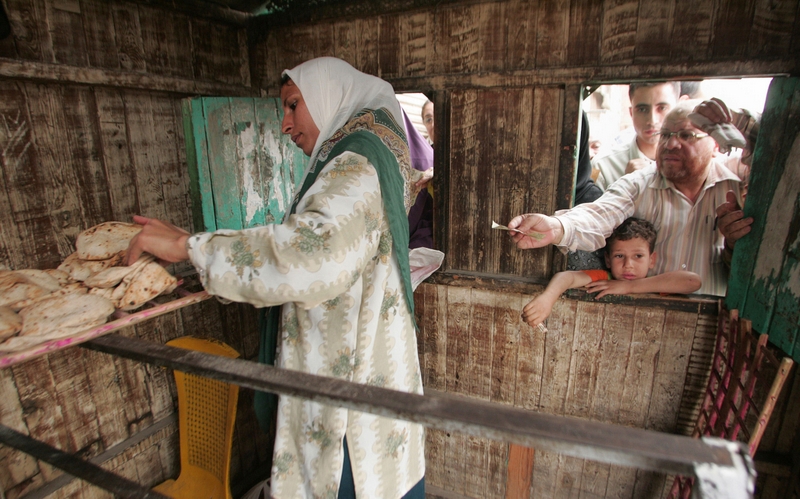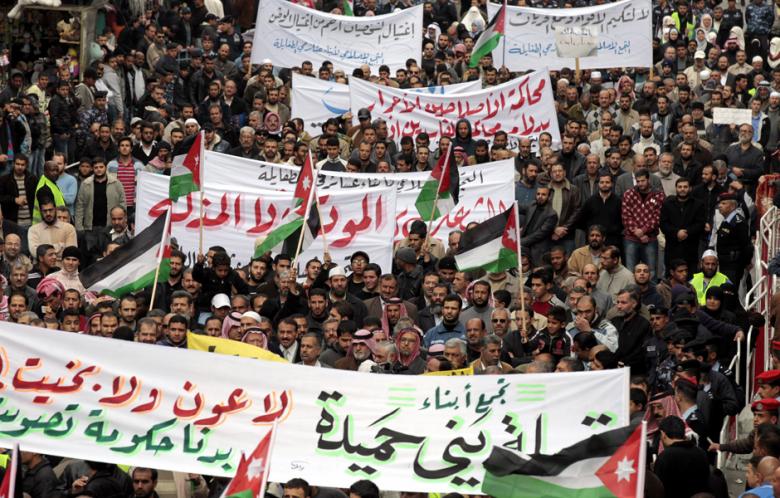
(AFP PHOTO)
President Abdel Fattah Al-Sisi said that a reshuffle of city governors is expected in January, adding that the performance of the government is good.
Al-Sisi added, however, that “we need more effort” and that he does not feel satisfied with the performance of ministers.
He added that a ministerial reshuffle is also expected to take place to satisfy “popular interest”.
Al-Sisi added that Egyptians “are now fully aware of the challenges facing them”, adding that they are not raising any factional demands. He added there are many sufferings but “our responsibility is to mend the rifts and keep away from disruption”.
The president said in an interview with the chief editors of the country’s three main state-owned newspapers, Al-Ahram, Al-Akhbar, and Al-Gomhuria, that he has been frank with the Egyptian people. He told them that “the current crisis the country is facing is bigger than any president, but it is not bigger than the Egyptian people”.
Commenting on the security situation, Al-Sisi said that a secret operation is currently taking place, following new techniques in fighting terrorism.
“The operation to secure the borders is ongoing,” Al-Sisi said, adding that an area of 500 metres on the borders with Rafah has been evacuated, and another 500 metres of borders with Gaza are being evacuated.
He added that “he is honoured to have belonged to the armed forces which protected the country twice, and is now part of the campaign to develop the country”.
The counterinsurgency campaign intensified after deadly attacks on 24 October, with the armed forces setting up additional checkpoints and arresting dozens of people in the area between Al-Arish and Rafah in North Sinai.
At the end of October, the military forced Rafah residents living within 500 metres of the border with Gaza to relocate. The military then demolished homes in the area to establish a ‘secure zone’, to destroy all underground smuggling tunnels leading into the Gaza Strip.
By 3 November, 1,156 families had been forced out of their homes with the promise of compensation from the government.
North Sinai authorities are now preparing for a new phase in the implementation of the Rafah buffer zone. It is expected to eventually increase to a total width of 5km, according to North Sinai governor Abdel Fattah Harhour.
When asked about the status of imprisoned youth, Al-Sisi ordered a committee from the “media youth” to monitor the prisons.
The Ministry of Interior was also ordered to do a full scale revision on the arrested youth, and whoever will be found innocent will freed, he said.
Since the beginning of the new academic year, Egyptian universities have been witnessing protests and sit-ins by anti-government students. According to the Association for Freedom of Thought and Expression (AFTE), over 300 students have been arrested on charges of protesting.
On the problem of economy, he explained that three quarters of our budget go to subsidies, debt service, and wages. He added that the remaining EGP 135bn is spent on health, education, services, utilities and other domains, and that a number of projects will be launched to meet any deficit.
Since being sworn as president, Al-Sisi’s administration has taken a string of economic decisions that could be classified as austerity measures. These include reducing fuel subsidies and imposing income taxes on both resident and non-resident Egyptians for their activities abroad.
Al-Sisi, Field Marshal of the armed forces, won 96.9% of the vote in the latest presidential election, soundly defeating Nasserite candidate Hamdeen Sabahy.

